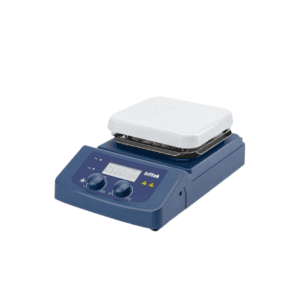Heating Blocks
Description
Heating Blocks for Precise Sample Heating in Laboratories
Heating blocks, also known as dry block heaters, are essential instruments in laboratories, offering a reliable and efficient solution for uniformly heating samples in tubes, vials, and other containers. These devices provide precise temperature control without the need for water or oil baths, making them an ideal choice for a variety of scientific and industrial applications.
Types of Heating Blocks:
1. Dry Block Heaters:
- Dry block heaters use interchangeable blocks that can accommodate different tube sizes, offering flexibility for various sample types. These are ideal for chemical synthesis, enzyme reactions, and incubation.
- Applications: Enzyme activity assays, DNA amplification, incubation of cell cultures.
2. Heat Blocks:
- Heat blocks or dry bath blocks provide uniform heating, ensuring that samples are evenly heated across the block. They are available in configurations that can handle multiple sample types simultaneously, making them ideal for high-throughput applications.
- Applications: Melting point determinations, warming reagents, and incubation.
3. Sand Baths:
- Sand baths offer an alternative heating method, using heated sand to surround the container, providing consistent heating. This is a safe option for heating flammable chemicals, as it avoids the risk of direct flame exposure.
- Applications: Safe heating of volatile chemicals, drying glassware
Key Features:
- Temperature Range: Heating blocks are available with a wide range of temperature capabilities to suit your specific needs, whether for high or low-temperature applications.
- Uniform Heating: Ensures consistent temperature distribution across the block, crucial for maintaining sample integrity and achieving reproducible results.
- Interchangeable Blocks: Many heating blocks come with removable and interchangeable blocks, making it easy to accommodate various sizes of test tubes, vials, and flasks.
- Safety Features: Built-in features like over-temperature protection and non-slip surfaces ensure both user and sample safety during operation.
Applications:
- Chemical Synthesis: Heating blocks provide controlled temperature for reactions, making them a crucial tool in laboratories involved in chemical research and product development.
- Biological Studies: Ideal for incubating biological samples, maintaining optimal temperatures for cell culture, enzyme reactions, and PCR processes.
- Pharmaceutical Research: Used in pharmaceutical labs for the preparation and testing of drug compounds, ensuring precise and controlled heating during formulation and testing stages.
Maintenance and Safety Tips:
- Calibration: Regular calibration of the temperature control system ensures that your heating block delivers accurate temperatures consistently.
- Cleaning: Keeping your heating block clean and free of contamination is vital for maintaining performance and preventing sample interference.
- Safety: Always follow manufacturer guidelines, use the appropriate containers, and ensure that the heating block is set up on a stable, fire-safe surface to prevent accidents.
- Heating blocks are a must-have in laboratories requiring efficient and reliable sample heating. Whether you’re working with chemicals, biological samples, or pharmaceutical products, heating blocks provide the precision and versatility you need for optimal results.





